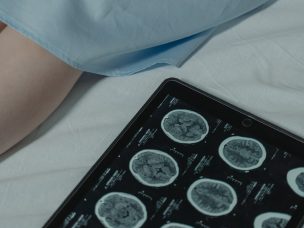Oncology
Nivolumab Monotherapy in Treatment-Naïve Non-Clear Cell Renal Cell Carcinoma
Nivolumab monotherapy produced a modest response rate in patients with nccRCC, with higher response rates observed in patients with higher PD-L1 expression. In 2015, the FDA approved nivolumab monotherapy for treating clear cell renal cell carcinoma (ccRCC) patients who are resistant to vascular endothelial growth factor receptor tyrosine kinase inhibitors. A trial examined the effectiveness...
Tivozanib Is an Effective Treatment for Metastatic Renal Cell Carcinoma
For individuals with metastatic renal cell carcinoma who have progressed on earlier regimens, such as axitinib, this study found Tivozanib to be effective. Metastatic renal cell carcinoma (mRCC) is a challenging and complex disease to manage. Recent advancements in mRCC management have led to combinations of immune checkpoint inhibitors and vascular endothelial growth factor receptor-tyrosine...
Hypogonadism in Males With Metastatic Renal Cell Carcinoma Receiving Sunitinib
This study found that, over time, treatment with sunitinib resulted in an increasing prevalence of hypogonadism among male patients diagnosed with metastatic renal cell carcinoma. However, administering testosterone replacement therapy led to clinically significant improvements in quality of life. Metastatic renal cell carcinoma (mRCC) is a challenging disease to treat, and single-agent tyrosine kinase inhibitors...
Socioeconomic Status Affects Multiple Myeloma Outcomes
Despite significant progress in multiple myeloma treatment, access to these cutting-edge therapies remains largely influenced by socioeconomic status. Individuals with low income living in economically deprived areas often experience worse outcomes. Novel therapies have improved the prognosis for patients with multiple myeloma (MM), but there are still socioeconomic disparities in patient outcomes in the United...
The Importance of Swallowing Exercises for Head and Neck Cancer Patients
Swallowing exercises and training during radiotherapy show inconclusive results, but benefits were observed in other areas, including mouth opening and mental health. Head and neck cancer (HNC) can significantly impact a person’s ability to swallow, nutritional status, physical function, and overall quality of life. A randomized controlled trial noted a decline in chronic dysphagia prevalence...
Negative Affect in Choosing Contralateral Prophylactic Mastectomy for Breast Cancer
Breast cancer patients’ decisions to undergo a preventive mastectomy are often driven by negative emotions associated with the disease rather than rational evaluation of available treatment options. Despite evidence supporting less invasive surgery for early-stage breast cancer, more and more breast cancer patients are choosing to undergo contralateral prophylactic mastectomy (CPM). CPM involves removing the...
Music Therapy for Breast Cancer Patients Undergoing Surgery
Music therapy is effective in managing anxiety and emotional well-being in women undergoing cancer treatments, according to a recent study. Breast cancer can be a stressful and anxiety-inducing experience for women, especially during diagnosis and treatment. The uncertainty surrounding the illness and the type of treatment can create high levels of emotional distress, impacting both...
Physical Activity Program Reduces Psychological Distress in Cancer Patients
Physical activity program intervention is associated with reduced time cost and overall greater efficacy in improving psychological distress and promoting physical activity in young adults and adolescent cancer patients. The majority of young adult and adolescent cancer patients report psychological distress, which can be alleviated by behavioral activation and physical activity. A 2023 study demonstrated...
Exercise and Lower Body Bone Health in Childhood Cancer Survivors
Personalized exercise programs with motivational features may help promote bone health in childhood cancer survivors who are at risk of reduced bone health. Childhood cancer survivors (CCS) are at an increased risk for decreased bone mineral density (BMD), related fractures, and other late complications. A randomized controlled trial found that a personalized exercise program may...
More Medical News








